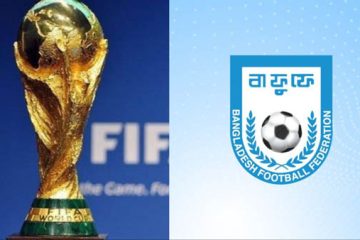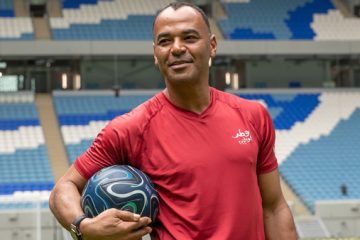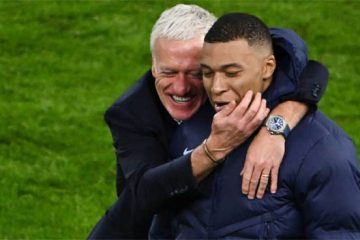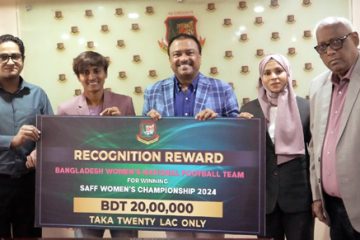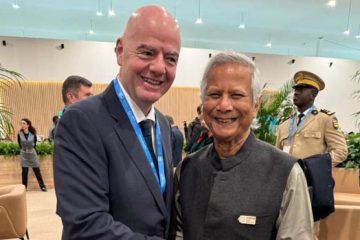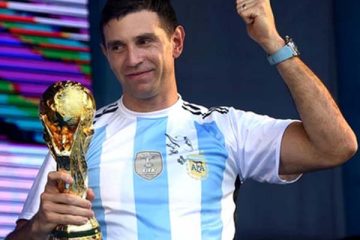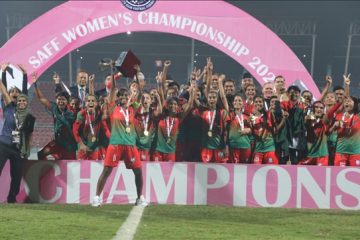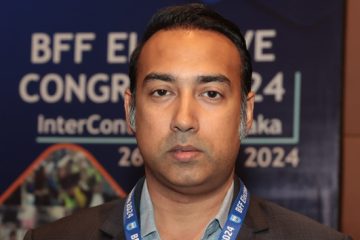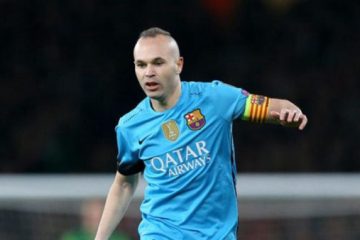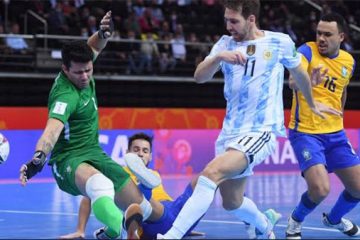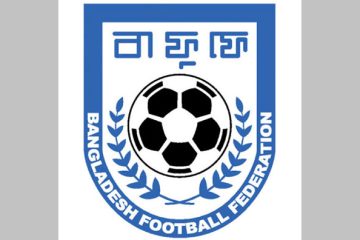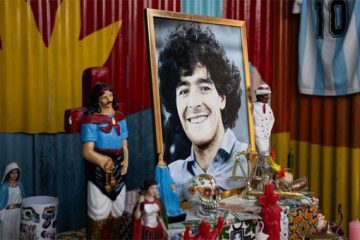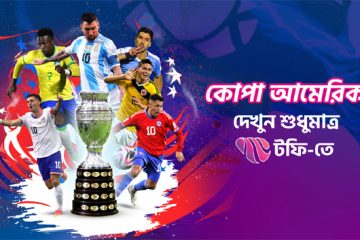Bangladesh’s football is soon to have a taste of Dutch flavour when Lodewijk de Kruif and his assistant Rene Koster will take the reins of national football team for the AFC Challenge Cup in March. The appointments of the Dutch duo have raised some expectation on Bangladesh football not just at home but also abroad. FIFA’s official website FIFA.com published an article on Bangladesh on Wednesday highlighting the expectations and Bangladesh’s future goal. Here is the article for New Age readers:
Only a few football fans would likely associate Bangladesh, who are considered minnows even in Asia, with a football giant such as the Netherlands. There is, after all, a huge gap that exists between the two sides, with the former 160 places above the latter in the FIFA World Rankings. This fact only served to whet the South Asian nation’s appetite, however, when Lodewijk de Kruif and his assistant Rene Koster, both of whom hail from the Netherlands, were appointed to take the reins of Bangladesh’s national team.
‘It is a big challenge to manage a developing football country like Bangladesh,’ Kruif, who has coached Nigerian giants Heartland over the past year-and-a-half, told FIFA.com in an exclusive interview. ‘But our goal is clear – to bring the game in Bangladesh to a higher level. To achieve that, we will begin from a Dutch-style education focusing on organisation and disciplines. We should improve their professionalism in both thinking and working.’
Koster, whose tasks include training coaches and youth development, elaborated what they are expecting the players to do: ‘Our vision is to instil the Dutch-style of play into their minds. This means good possession of the ball, patient build-up from the back, control of rhythm to score goals, aspiration for dominance and win.’
Footballing potential
Despite their humble placing in the global pecking order, Bangladesh is the world’s eighth most populous nation. And it is the country’s passion for the game that makes FIFA president Joseph S Blatter believe they have a bright future.
‘You can see that football is more than just an expression of joy here,’ said Blatter during his visit to Bangladesh last March. ‘It unleashes real passion and has the potential to take off. There are 160 million inhabitants in the country and I am certain that Bangladesh has the pool of talent it needs.’
Through its Goal Programme, FIFA has contributed to Bangladesh’s development with the construction of its FA headquarters, a football pitch and a football academy. ‘That’s where FIFA can help us out,’ Kazi Salahuddin, president of the Bangladeshi Football Federation, paid tribute to FIFA in a previous interview with FIFA.com. ‘The overall aim is for the Bangladeshi national team to improve its performances and to regain a prominent position in the Asian Zone.’
Through their efforts, and in conjunction with FIFA’s assistance, the Bengal Tigers have made consistent progress over recent years. They stormed into the last four in the 2009 South Asian Football Federation (SAFF) Championship, before clinching football gold in the 2010 South Asian Games.
Long-term vision
Kruif’s first test in charge of Bangladesh is September’s SAFF Championship in Nepal, during which the team are expected to emulate their title-winning feat in 2003. ‘Our contract officially begins in June, which allows us three months to prepare the team for the tournament. We will start from the base and will aim to improve the team step-by-step,’ said the 43-year-old.
In fact, their work has begun after the announcement of their appointment, as they are keen to prepare for the job as early as possible. ‘We were in Bangladesh four weeks ago and we watched two games in the local league. We have seen players with good qualities. In March we will go to the Challenge Cup qualifying with the team,’ added Koster.
While the ever-progressive Bangladesh Premier League remains nearly the sole provider to the national team, the Dutch coaches have cast their sights further abroad as they have started to recruit overseas-based Bengali players eligible to play for their country. Koster said: ‘To select players from Europe and other countries is our vision for the long-term development. We hope we can find players from the rest of the world who can bring some extra qualities to the national team and can join us for the SAFF tournament.’
Despite the difficulties facing Bangladesh, Kruif has no doubt that they can fulfil their mission: ‘In the Netherlands to become a coach you must go through strict education and work hard. That is why Dutch managers have found their places in many countries across the world. To gain development the players have to train hard with a good programme, and this is what we will present our boys with as we are aiming for success in Bangladesh,’ he concluded

